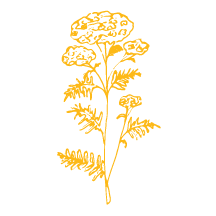
The young client was open to the aftercare program, but not during the coronavirus pandemic.
“He went to rehab and wanted transitional living afterwards,” says Bar Clarke, former Head of The Deck House School in Edgecomb, now working as an educational and therapeutic consultant. “But he had this new anxiety of living in a house with 12 other guys. That would not have been an issue previously.”
Coordinating with his client’s mother, Bar on the fly came up with a treatment protocol to allow the young man to return safely home. “With the pandemic, there was no way he could have settled into that aftercare program.”
“What has happened over the last eight weeks is extraordinary,” says Bar.
“Usually we’re able to see how to support the child. What used to be straightforward is not now. COVID has added a whole new element of stress.”
Bar is Founder and President of the Loeta Consulting Group, which “work[s] with families from around the country to find appropriate emotional or academic environments and offer[s] both placement and case management services,” according to its website.
He comes to his work honestly.
“I was not a good student—I did not fit in. I think that’s why I have always gravitated towards people who struggle finding their niche. I am passionate about helping people not slip between the cracks.”
Bar, who has lived in the region since 1989 and on Southport since 2014, finds his daily routine as a consultant little changed by the pandemic. “I was always on the phone and FaceTime a lot anyway—the biggest thing is I’ve become adept at Zoom,” he jokes.
While his daily habits have been only slightly affected, the world in which he works has been entirely transformed.
“This is our first-ever pandemic. Kids are looking to us for guidance and support, but this is so unprecedented—we are all trying to figure it out at the same time.”
With years of experience guiding adolescents behind him, Bar is a keen observer of what is unfolding. “I have seen how adept young people are at finding outlets—social media or whatever. That now has changed. With everyone under the same roof, those outlets just are not there.”
It concerns Bar.
“Before COVID-19, kids who had issues were acting out—we could see it. Now they’re acting in, and that’s the scarier piece. It’s harder to find; it’s harder to see. All kids are now struggling, and kids who were already struggling are really diving.”
He has one word to offer families seeking to improve their situations:
“Communicate.”
He elaborates:
“Talk. Just put it out there. Whether it seems painful or cringe-worthy at the time, the more we’re able to talk about things—the more we put it out there—the less of a stigma it takes on. We’re in a situation where we need to communicate so people can get the support they need. If you can create an environment where there is no judgment in asking for help, whether it be with drugs or alcohol or mental health, then you’re doing someone a huge favor. The sooner we can drop the stigma of all this, and people are able to say ‘I need help’ and parents don’t take it as an affront of their parental abilities, the sooner we’ll be able to get people the help that they need.”
Determinedly upbeat (“I always spend time looking at what we can do with what happens”), Bar believes good things are taking place too.
“It’s so important for people to understand mental health challenges are not someone else’s issue—and to be okay with owning what’s going on. To be able to say, this is me, and this is my family—that’s huge. We have an opportunity to fight the stigma of mental health and to ask, as a parent, how can I help my kid? At the same time, how can I help myself?”
Hard as things are, Bar sees opportunities for positive change in the future.
“I think wraparound services (allowing children with mental health challenges and their families to all be home) will explode because we are learning we can actually be together. We can have families at home doing the therapeutic work together—after all, families have had to work together in other ways these past couple months. We’re figuring it out.”
The explosion in tele-health services Bar is witnessing only serves to further support his positive outlook on the days ahead.
“People are now accepting video-conferencing as a legitimate way to connect with someone. All of a sudden those of us who live in rural Maine are not held hostage by our geography. There are thousands of therapists open to us—tele-health is something that will be normal.”
“And that,” he says, voice rising with the passion of one who really cares, “is great for all of us.”
Bar Clarke has spent the last 30 years working with adolescents and young adults. Helpful links for those seeking online mental health care information and counseling resources may be found at the Loeta Consulting Group’s website on this page.




